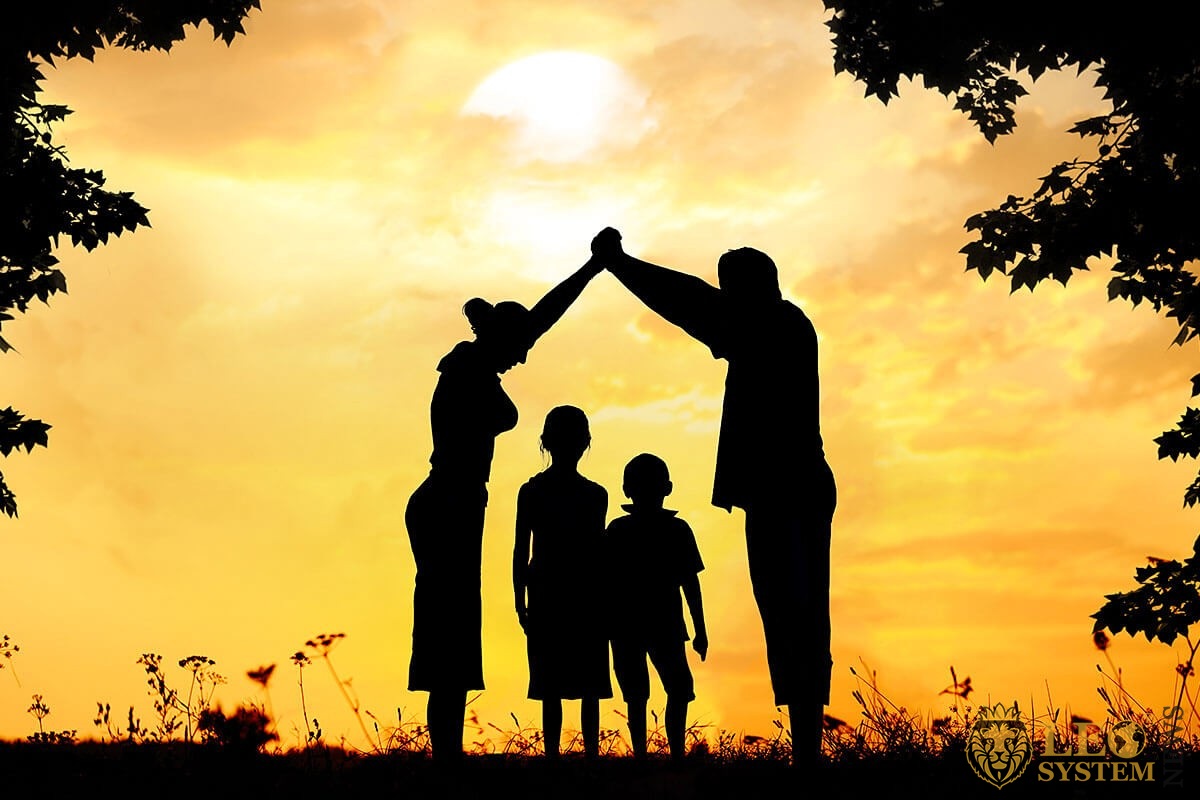We never really question: What is the most important thing in a family? The family is a constant in our lives that we just accept without question.
Unity and Strength.
Since the very earliest man appeared on this planet, the family has been the basic structure of mutual support. In the beginning, humanity was competitive lawless and violent, and an individual without mutual aid from a family would have little chance of survival.
With a family, an attack on one is an attack on all and, therefore, offers each family member greater security.
Relationships with romantic partners will develop. Sometimes they will last and endure for life, sometimes they will fail, and the individual will be left alone and could feel very unloved, were it not for the family who will step in and offer the support through the crisis.
Misfortune or personal tragedy may fall upon any individual, but the family member will know that other members of his/her family will instinctively step in to assist.

Of course, not every family can be like this. We describe the default situation. Things can happen, like abuse, which can blow the whole family structure apart. This, however, would be an exception.
Mutual Support.
We have an inbuilt and inherited link with other members of our family. One that will be constant throughout our life.
Friendship with others is a far more transient connection, and in most cases, friends will come and go for periods of our life. Friends at school will (usually) fade away, as will friends made at other periods in our life.
Friends may become all-important to us at different times in our lives and less so in others. The family will always be there in the background! This is always our strength and support!
Of course, there are different understandings of the family in cultures around the world. In the west, the size of what we call family has shrunk to parents, siblings, and their offspring.
In some cultures, a family will naturally include cousins, aunts, uncles, and potentially be a substantial number of people.
The degree of connection between family members also differs according to the culture. In countries with less generous social security/pension arrangements, the family will be self-sustaining in terms of financial support.
Parents will support the children in their youth and return. The same children will help the parents when they grow old. It is taken for granted that this will occur and especially in some Asian countries any child who does not care for elderly relatives will be ostracized by society.

In China, there is even a law that says children must visit parents. This law came into effect in 2013. In countries with less comprehensive healthcare, the problem of large emergency healthcare bills is overcome by family members assisting the injured family member financially.
In the West, this has mostly been replaced by a reliance on the state to assist in healthcare and pension costs.
Unquestioning Love.
One of the needs that humans require for a healthy lifestyle is love. This is an essential requirement for an individual’s mental health. Families can play a critical role in supplying love. A mother will love her child no matter what. It is a source of love that can be relied on.
A Retreat from the World.
The world today can be a pretty unforgiving place. At work, we may be criticized for our performance. Our romantic partner may express negative feelings in times of difficulty.
We may fall out with our friends over trivial matters. We can sometimes find ourselves balancing our real opinions on something with our need to be liked – loved by our friends, work colleagues, employers, and even partner.
There is one place where the bonds of love are more significant than mere disagreements, and that is within the family. We know that our family is there no matter what, either in person or even remotely using technology. The family is one place where we can let our guard down.
A Moral Anchor.
It cannot be said that the morality of every member of a family will be equal. People’s life develop in a variety of circumstances, and choices are made that lead us in the wrong direction on occasions.
We can excuse our actions and drift further into a pit of impropriety, demonstrating a lack of morality.
We can act that way because of where life has led us and the ways that we have chosen to cope with aspects of our life. But we will have a benchmark for our actions in the shape of our family. If we stray too far away from that point, then we can review our actions.

It is easy to justify an action if you are comparing yourself to someone with far more advantages in life. Still, if you are faced with looking at other members of your family who sprung from the same set of life chances, it is not so easy to make excuses. A family represents that anchor, the benchmark from which we judge ourselves.
Constant Friendship and Evolving Responsibilities.
Because our membership of a family is lifelong, it provides a framework in which we can live. Our brother will always be our brother, even if we disagree on some matter, while we can easily disconnect from friends.
- We start our membership of a family as a dependent, a child who requires other family members to care for them.
- We gradually become more independent and need less input from others, and we may even start to have limited responsibilities to younger siblings.
- We mature and become independent, not requiring input from others except in the case of some misadventure.
- We are also there for other family members who may need extraordinary short-term assistance.
Our parents are still young and self-supporting at first, but as age takes its toll, they begin to need some assistance. Not much at first, but then later, they begin to become dependent on you and your siblings, until, in the end, they are the dependents, and you are the carer.
This is an ever-changing change in the levels of our dependence and responsibility working with complicated relationships between generations.
However, one constant factor is the way that everyone in the family understands what their role is at any given time. We know at last what is the most important thing in a family? It is the Love and Support.
Also read the post: Why Does a Man Leave His Family?
































